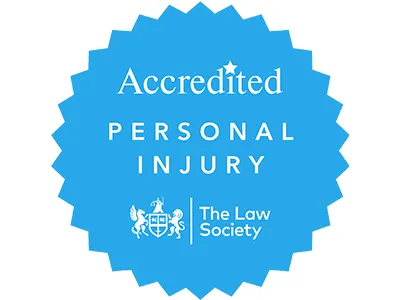Understanding the Requirements for Criminal Injuries Compensation — Why Delays in Reporting Don’t Always Disqualify You
Applying for criminal injuries compensation can feel overwhelming, particularly when it comes to understanding the rules around reporting the incident to the police. A common misconception is that a crime must be reported immediately for a victim to be eligible for compensation under the Criminal Injuries Compensation Scheme (CICS). This is not strictly true.
While police reporting is a key eligibility requirement under the Scheme administered by the Criminal Injuries Compensation Authority (CICA), the timing of that report is assessed more flexibly than many assume.
What the Scheme Requires
The Scheme is clear: You must report the incident to the police in order to be considered for compensation.
Reporting to other parties such as a doctor, employer, or school does not meet this requirement. Only a formal police report qualifies.
However, what the Scheme doesn’t demand is that the report be made immediately after the incident. Instead, the requirement is that victims report the crime as soon as is reasonably practicable.
What If There’s a Delay?
The CICA recognises that there are many valid reasons why a victim may not report a crime straight away. In such cases, the applicant is asked to explain the delay, and the CICA will then assess whether it was reasonable in the circumstances.
Factors that the CICA considers include:
- The victim’s age at the time of the incident
- Any mental or emotional capacity issues
- Whether the trauma of the event made earlier reporting unreasonable
This approach recognises the reality that people respond differently to trauma, and it ensures that genuine victims are not unfairly excluded due to understandable delays.
Timing of the Compensation Claim
Although the crime doesn’t have to be reported immediately, claims should still be made as soon as reasonably practicable — generally within two years of the incident. However, this timeframe can be extended in certain circumstances, such as:
- Where the incident was reported late but with good reason
- If the victim was a child at the time of the incident
- In cases involving psychological trauma that delayed reporting or claim submission
No Need for a Conviction
Another important point: the Scheme operates on the balance of probabilities, not the higher criminal standard of “beyond reasonable doubt.” This means:
- A conviction is not necessary provided you have cooperated as far as reasonably practicable in bringing the assailant to justice.
- The assailant does not have to be identified or prosecuted
- Awards can still be made where evidence supports the victim’s account
Key Takeaways
- Reporting to the police is essential but doesn’t have to be immediate.
- Report the incident as soon as you reasonably can.
- Delays can be explained and considered with empathy.
- Compensation decisions are based on the overall circumstances, not criminal court outcomes.
Victims are encouraged to report the crime when they feel able to do so, and to begin their application for compensation through the GOV.UK website at the earliest reasonable opportunity.
If you’re unsure about your eligibility or how to begin the process, get in touch with us.





